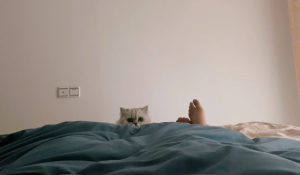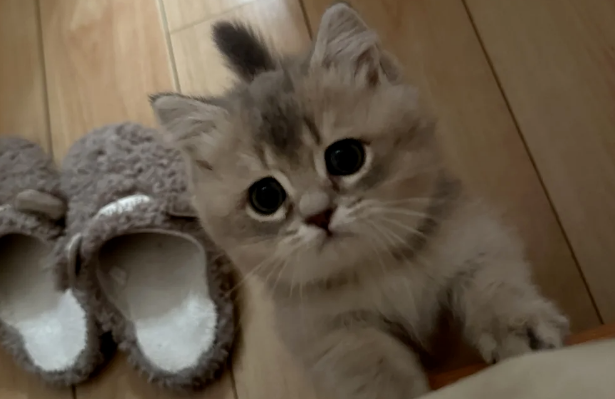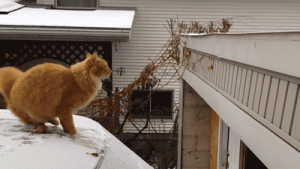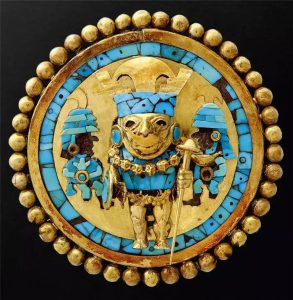Have you ever found it absolutely magical? You’ve just woken up from your sleep, haven’t even had the chance to stretch, and your cat seems to have a built-in radar—whoosh—it’s already at the edge of your bed. Sometimes it gazes at you with wide, eager eyes; other times it jumps right onto the bed, rubbing and nuzzling against you. Why does it do this? Keep reading, and you’ll find out~
-
Cats use their sense of smell
A cat’s nose is incredibly sensitive and can distinguish all sorts of scents. When humans sleep, their bodies emit a different scent compared to when they are awake. As soon as you wake up, your metabolism and physiological state change, and so does your scent. My cat is especially skilled at “sensing” me with its nose. One afternoon, I fell asleep on the couch and, upon waking, barely opening my eyes, I felt my cat rubbing against me. Later, I realized it must have noticed the subtle change in my scent, signaling that I was awake. Cats can also remember their owner’s unique scent, which helps them accurately tell if you’ve really woken up.
-
Cats have highly sensitive hearing
A cat’s ears are like two ultra-sensitive little radars. While humans sleep, our breathing and heartbeat are steady and quiet. But when we wake, even slight movements—like turning over, stretching, or a small hum—don’t escape a cat’s ears. Every morning, when I wake up groggily and stretch in bed, making the slightest sound, my ginger cat comes flying from the corner of the living room, jumps onto the bed, circles me endlessly, and meows as if to say, “Human, you’re finally awake! Come play with me!”

-
Biological clock and daily habits
If a human wakes up around the same time every day, cats gradually adapt to this rhythm, forming their own internal clock. At that specific time, even if the owner isn’t fully awake, the cat waits nearby. A friend of mine wakes up at 7 a.m. sharp every day, and his cat shows up at his bedside around 6:50 a.m., jumps onto the pillow, and gently rubs its head against his face, urging him to get up. It’s as if the cat has its own tiny alarm clock, knowing exactly when its human should wake up.
-
Cats observe you closely
While you sleep, your posture and facial expressions are relaxed. As you near waking, your body starts to show movement, and your expressions shift subtly. Cats are keen observers of these small changes. My cat often lies at the edge of the bed while I sleep, watching me closely. When it notices my eyelids fluttering or slight body movements, it knows I’m about to wake up and immediately comes over.
-
How cats know when you’re pretending to sleep
Beyond these cues, cats can clearly hear your breathing and heartbeat. They are extremely sensitive to changes in these sounds and can judge your state by the pace of your breathing. When you pretend to sleep, you may deliberately slow or stabilize your breath, but there are still subtle differences from genuine sleep, which cats can detect with their sharp hearing. Additionally, cats combine their perception of your body temperature with your habitual wake-up time to make a judgment. While you sleep, cats often cuddle close, familiarizing themselves with your warmth. When you wake, your metabolism changes slightly, and your body temperature shifts. By detecting these temperature changes and cross-referencing with your known wake-up routine, a cat can accurately tell whether you’re truly awake or just pretending.
Does your cat come to find you the moment you wake up? Have you ever pretended to sleep, only to be “disturbed” by it?





